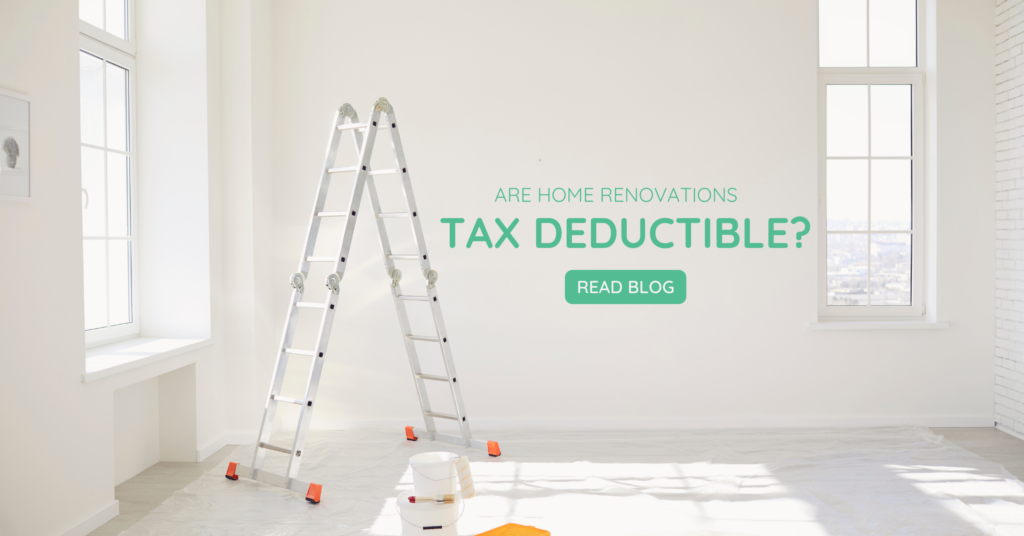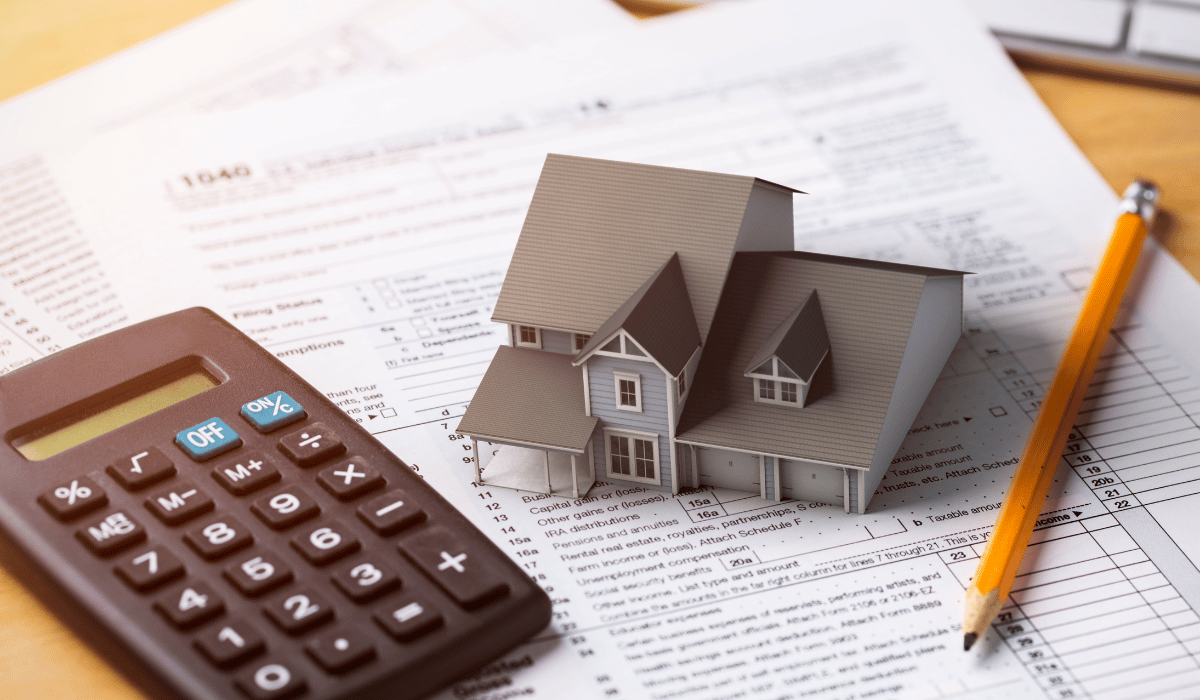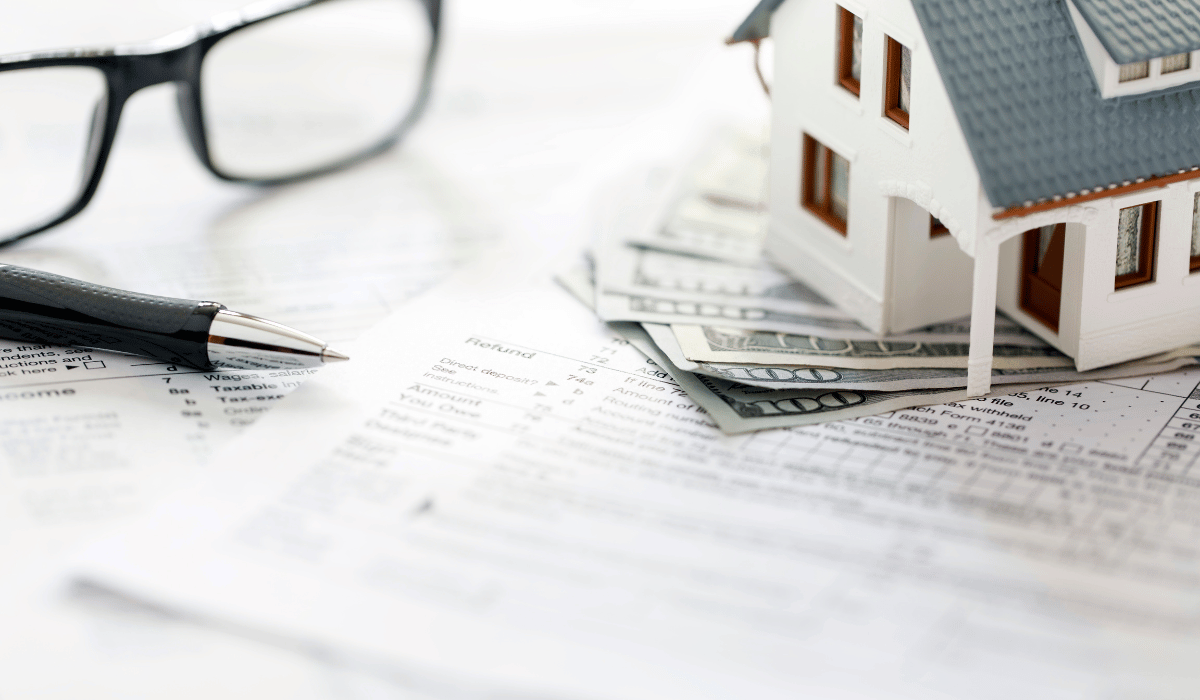Are Home Renovations Tax Deductible?
Reading Time: 6 minutesHome renovations can be an exciting venture for homeowners looking to enhance their living space, increase property value, or simply make their home more comfortable and functional. However, when considering the cost of these renovations, it’s crucial to understand the potential tax implications and benefits. This article aims to provide a comprehensive guide on the…

Home renovations can be an exciting venture for homeowners looking to enhance their living space, increase property value, or simply make their home more comfortable and functional. However, when considering the cost of these renovations, it’s crucial to understand the potential tax implications and benefits.
This article aims to provide a comprehensive guide on the tax deductibility of home renovations, helping homeowners navigate the complex tax landscape and potentially save money.
Table of Contents
General Tax Deductibility of Home Renovations

Tax deductions reduce the amount of income that is subject to tax, potentially lowering the overall tax bill. While many personal expenses are not tax-deductible, certain home renovations can qualify under specific conditions. Understanding which renovations are eligible and the criteria set by the IRS is essential for homeowners looking to maximize their tax benefits.
Distinction Between Personal and Business Expenses
One of the key distinctions to make is between personal and business expenses. Personal home improvements generally do not qualify for immediate tax deductions, but they may impact the amount you can exclude from capital gains tax when you sell your home. On the other hand, business-related home improvements, such as those made to a home office or rental property, can often be deducted more directly.
IRS Guidelines on Home Renovations and Improvements
The IRS provides specific guidelines on what constitutes a deductible expense. Generally, renovations that add value to the home, prolong its useful life, or adapt it to new uses are considered capital improvements and are not immediately deductible. However, these expenses can be added to the home’s basis and used to reduce capital gains when the home is sold.
Repairs vs. Improvements
Understanding the difference between repairs and improvements is crucial for tax purposes, as they are treated differently by the IRS.
1. Definition of Repairs
Repairs are maintenance activities that are necessary to keep the home in good working condition. These are typically smaller, routine tasks that fix existing issues without significantly enhancing the property’s value or extending its life. Examples include:
- Fixing a leaky faucet
- Patching a hole in the roof
- Repairing a broken window
- Repainting faded walls
- Replacing worn-out hardware
These expenses are generally not deductible for personal residences. However, for rental properties, repair costs can be deducted as current expenses.
2. Definition of Improvements
Improvements, on the other hand, are more substantial renovations that add value to the home, extend its useful life, or adapt it to new uses. These projects go beyond simple maintenance and usually involve significant changes or additions to the property. Examples include:
- Adding a new room or building an extension
- Installing a new heating or cooling system
- Modernizing the kitchen with new appliances and fixtures
- Remodeling a bathroom
- Replacing the entire roof
- Upgrading electrical wiring throughout the home
These expenses are capitalized, meaning they are added to the home’s basis. The adjusted basis can help reduce capital gains tax when the property is sold.
Examples of Common Home Renovations
Home renovations can range from minor cosmetic updates to extensive structural changes. Understanding the potential tax benefits of these projects can help homeowners plan effectively.
- Minor Renovations
- Painting a Room: A quick and relatively inexpensive way to refresh a space.
- Refinishing Floors: Sanding and resealing hardwood floors can make them look new.
- Installing New Light Fixtures: Enhances the aesthetic appeal and functionality of a room.
- Moderate Renovations
- Bathroom Updates: Replacing old fixtures, adding new tiles, or installing a new vanity can significantly improve a bathroom’s appearance and usability.
- Kitchen Upgrades: Updating countertops, cabinets, and appliances can modernize the kitchen and increase the home’s value.
- Energy-Efficient Improvements: Adding insulation, installing energy-efficient windows, or upgrading to a high-efficiency HVAC system can qualify for tax credits.
- Major Renovations
- Room Additions: Adding an extra bedroom, bathroom, or even a home office can increase the living space and value of the property.
- Full Kitchen Remodel: Completely overhauling the kitchen with new layouts, plumbing, and electrical work.
- Basement Finishing: Turning an unfinished basement into a livable space like a game room, guest suite, or rental unit.
Tax Deductions for Homeowners

Homeowners can take advantage of various tax deductions to offset the costs of home improvements and renovations. These deductions not only make it more affordable to maintain and enhance your property but also provide significant financial benefits.
In this section, we will explore specific types of home improvements that may qualify for tax deductions. Understanding these deductions can help you maximize your tax savings while making valuable improvements to your home.
1. Medical Home Improvements
Medical home improvements are modifications made to accommodate a medical condition or disability. Examples include installing wheelchair ramps, widening doorways, or adding grab bars in bathrooms.
To qualify for a deduction, the primary purpose of the renovation must be to provide medical care. Additionally, the expense must be necessary and reasonable.
Homeowners must retain detailed records of the expenses, including invoices and proof of payment, as well as a letter from a physician stating the medical necessity of the renovation.
2. Energy-Efficient Improvements
Energy-efficient improvements that may qualify for tax credits include installing solar panels, adding insulation, replacing windows, and upgrading to energy-efficient heating and cooling systems.
The federal government offers various tax credits for energy-efficient home improvements. These credits can cover a percentage of the cost of qualifying improvements, reducing the overall expense.
In addition to federal tax credits, many states and local governments offer incentives for energy-efficient renovations. These can include additional tax credits, rebates, and grants.
3. Home Office Renovations
To qualify for a home office deduction, the space must be used regularly and exclusively for business purposes. It must be the principal place of business or a place where you meet clients.
Eligible expenses can include improvements made directly to the home office, such as installing new lighting or upgrading technology. A portion of general home improvements, like a new roof or HVAC system, may also be deductible based on the percentage of the home used for business.
4. Rental Property Renovations
Landlords can deduct the cost of repairs and improvements to rental properties. Repairs are deductible in the year they are made, while improvements must be depreciated over time.
Improvements to rental properties are depreciated over their useful life, as determined by the IRS. This allows landlords to spread the deduction over several years.
Capital Gains Tax Implications
Capital gains tax is the tax on the profit made from selling an asset, such as a home. The gain is calculated as the difference between the selling price and the adjusted basis of the home.
The IRS allows homeowners to exclude up to $250,000 ($500,000 for married couples) of capital gains from the sale of a primary residence, provided they meet certain criteria. Renovations that qualify as capital improvements can be added to the home’s basis, reducing the overall capital gain when the home is sold. This can potentially lower the capital gains tax owed.
Homeowners can maximize their deductions by keeping detailed records of all improvements and their costs. Consulting with a tax professional can also help identify additional deductions and strategies.
Record-Keeping and Documentation

Maintaining detailed records is essential for substantiating deductions and proving the cost basis of the home. This includes keeping receipts, invoices, and contracts related to renovations.
Documentation should include descriptions of the work performed, dates, costs, and the purpose of the renovation. Photos before and after the renovation can also be helpful. Homeowners should retain records for at least three years after filing the tax return that includes the deduction. However, it is advisable to keep records for as long as the home is owned, plus an additional three years after it is sold.
Conclusion
Home renovations can offer various tax benefits, but it’s essential to understand the specific rules and criteria that apply. By following the strategies above, homeowners can make informed decisions and potentially reduce their tax liability. Proper planning and documentation can help maximize the financial benefits of home renovations.
At Green Ocean Property Management, we specialize in providing comprehensive, hassle-free property management services tailored to meet your needs. From tenant screening and rent collection to maintenance and legal compliance, our expert team handles every aspect of managing your property with professionalism and care.
Experience the difference with Green Ocean Property Management! Contact us today to learn how we can help you maximize your property’s potential and ensure a smooth, stress-free management experience.
Advanced Strategies for Seasoned Investors: Mastering the Real Estate Market
Reading Time: 8 minutesCongratulations! You’ve built a solid foundation in real estate investing, weathered market shifts, and amassed a portfolio of income-generating properties. Now it’s time to take your real estate game to the next level. This guide dives into advanced strategies specifically designed for seasoned investors seeking to maximize returns and achieve long-term financial goals in the…
Achieving a Smooth Lease Management Transition
Reading Time: 3 minutes There are different ways a property management company handles transition in lease management. Here at Green Ocean Property Management, we make it as smooth and as efficient as possible. In this article, we share with you how we ensure a smooth transition of the management of properties and tenants during the duration of…
Benefits of Having an in-house Maintenance Team
Reading Time: 2 minutes One of the most important differences between our property management company and others is the fact that we have on staff maintenance. What does that mean to our clients? Cost savings mean more money in your pocket. We’re able to figure out how fast our guys do work and more importantly…








